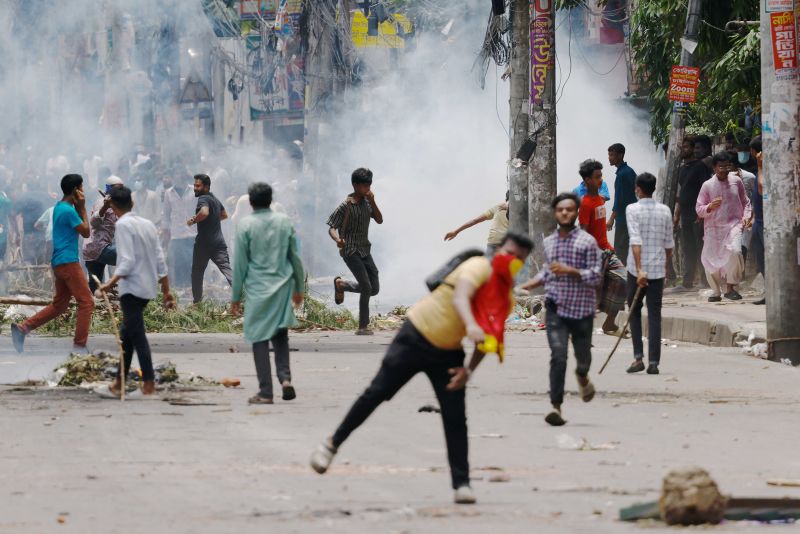Bangladesh’s Apex Court has recently taken a critical decision that implies significant transformations in the country’s employment sector. According to local media, the supreme judiciary body of Bangladesh has recently ruled back some job quotas after witnessing widespread violent protests. This groundbreaking decision will inevitably reshape the country’s employment landscape, stirring an intense debate among different social, political, and economic stakeholders.
Bangladesh, a developing South Asian country, has a unique job quota system that reserves a specific percentage of government jobs for different groups. These include freedom fighters’ descendants, ethnic minorities, women, and people with disabilities. The system initially meant to promote social justice and inclusivity. However, it has lately spurred discontent among different segments of society, leading to widespread protests.
The recent upheavals in the country have expedited the Supreme Court’s decision to review the quota system judiciously. Reports from the country’s key media outlets suggest that the apex court has opted to roll back a few sections of the existing system to subdue public outburst and restore peace and harmony.
In the past weeks, Bangladesh was shaken by fierce protests with thousands of young aspirants rallying against what they perceived as an ‘unfair quota system.’ The protestors argued the system was blocking their rightful chance to secure government jobs, in an economy where public sector employment is highly coveted. The protests took a deadly turn when several participants were gravely injured, commanding nationwide and international attention.
Responding to these extraordinary circumstances, the Supreme Court made the decision to revise some elements of the quota system. According to the most recent reports, the court pulls back the quotas for descendants of freedom fighters and some districts in a bid to restore fairness to the selection process. How this will be done systematically and without creating significant gaps in the public service sector remains a question for policymakers and administrative officials.
This turning point in Bangladesh’s employment policy is expected to have widespread implications. Most importantly, it is projected that there will be a marked increase in the number of general applicants competing for government jobs, thereby intensifying competition. Experts also predict that this change will shift the country’s demographic representation in public service, potentially redrawing the socio-economic landscape of government employment.
Additionally, this move is anticipated to stimulate a broader debate on fairness and equality in public employment. While some people hail the court’s roll back decision as a step towards greater equality, others decry it as a potential hindrance to affirmative action policies in a country still contending with the socio-economic disparities.
In conclusion, the recent decision rolled out by Bangladesh’s Supreme Court represents a landmark in the country’s public employment sector. As the nation grapples with the implications of this transformative ruling, it becomes evident that the road to equality and communal harmony is seldom smooth or straight. Regardless, this occurrence serves as a stark reminder of the power that public voice can exhibit, signaling a new era of policy-making governed by the principles of fairness and equal opportunity.




